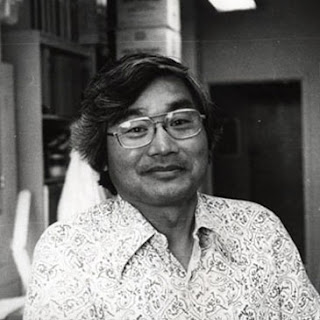 |
| Joseph M. Ogawa Photo: UC Berkeley
"Do What Is Right When Faced With A Challenge"
|
Here is a link to his scholarship fund at U.C. Davis.
 |
| Joseph M. Ogawa Photo: UC Berkeley
"Do What Is Right When Faced With A Challenge"
|
Posted by
martinog
at
11:45 AM
0
comments
![]()
Posted by
martinog
at
1:03 PM
0
comments
![]()
From CNN.com
Posted by
martinog
at
9:52 AM
0
comments
![]()
Posted by
martinog
at
10:45 PM
0
comments
![]()
Posted by
martinog
at
11:43 AM
0
comments
![]()
by Stephen L. Read, MD Financial elder abuse has been called “the crime of the 21st century,”6 and with good reason. The most recent estimate of total household wealth in the US is $85.7 trillion, which represents more than 30% of world wealth. Estimates of the amount to change by inheritance in the coming decades reach as high as $40 trillion. Therefore, not only is the disposition of a person’s estate, by will and/or trust, the largest financial transaction in many persons’ lives, and of great significance to families and other heirs, the integrity of the testamentary act, as well as the validity of gifts, property transfers, and other financial acts, is also important for society at large. Opinions about testamentary capacity, either postmortem (in a contested situation) or antemortem may be requested by the family, the patient, or the attorney. Familiarity with the criteria for testamentary capacity and factors relevant to the vulnerability to undue influence is therefore basic. CASE VIGNETTE After his wife’s death 20 years earlier, Dr S named 2 of his daughters co-trustees of his trust. As he continued professional activities, he had come to rely on the youngest to assist with his office, and then his home bills. When he retired after a stroke, she and her family came to live with him—and take care of him. Six months before the initial psychiatric evaluation, the other co-trustee daughter was shocked to learn that the assets of the trust had been reduced from several million dollars to less than $100. She confronted her sister and informed her other siblings. Conservatorship was granted by the court, and the experienced professional conservator decided that Dr S had to be removed from his long-time home for his own safety. Dr S was placed in a nursing home because of his physical debilitation. During the initial forensic psychiatric consultation, Dr S was thoughtful and dignified, but with mild cognitive impairment due to early dementia, probably vascular-based. He was receiving physical therapy, but he had no insight into his youngest daughter’s responsibility for his deterioration, and he was unaware of her financial rapacity: he still endorsed her as his surrogate decision maker. As Dr S improved physically, he regained some mental energy. His defense of his daughter foundered as the discovery process related to the conservatorship revealed her long pattern of stripping assets: purchasing property in other countries, buying gold ingots, and other patently deceptive acts. An epiphany occurred in a later session—he recalled that as he had weakened, he could not climb the stairs to his bedroom, and the daughter and her family would step over him as he lay exhausted on the landing! As he reflected on the meaning of that act, he came to realize how low her regard and concern had become. This description also proved to be impressive to the court. At the hearing on competing petitions for conservatorship, the court decisively rebuked the abusive daughter and directed the district attorney to file criminal charges. Dr S was not vindictive, but neither did he continue to defend her; the psychiatrist attributed his equanimity to muted emotionality as a result of his vascular brain damage. Dr S was not called to testify, but the daughter and her husband were stripped of all the acquired assets, together with additional financial penalties, and served time in prison for elder abuse. In summary, Dr S was the victim of physical neglect and abuse (he had lost 50 lb in 3 years), psychological tyranny and, of course, dramatic financial exploitation, presumably the major motivation for the daughter’s campaign (possibly with the additional benefit of being revenged on siblings of whom she had long been envious). This case illustrates several points to consider in assessments of elder abuse. Read more at: Psychiatric Times, 01-11-2016
Posted by
martinog
at
5:08 PM
0
comments
![]()